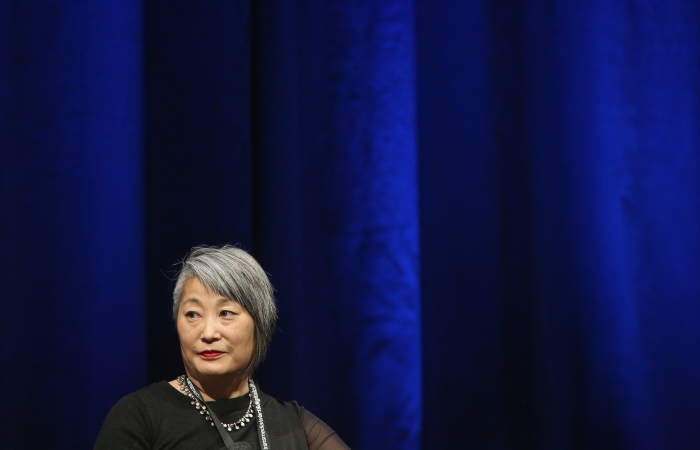
Virtual Reality and the Feeling of Virtue: Women of Color Narrators, Enforced Hospitality, and the Leveraging of Empathy
Thinking Cinema Series Lisa Nakamura, University of Michigan
March 27, 2019 · 4:30 pm—6:00 pm · 100 Jones Hall

Many researchers and evangelists argue that V.R. is fundamentally more “moving” than other media because of users’ visual immersion in navigable worlds and their empathic identification with another visual perspective. (see Rubin, Bailenson). This essay will analyze women of color’s labor as virtual reality’s documentary subjects whose digital presence and hospitality within war-torn, emiserated, and inhospitable scenes such as a Lebanese refugee camp, a favela, and a cucumber farm enables a fantasy of virtuous empathy on the part of the viewer.
Virtual reality’s painstakingly created virtuous identity as the “empathy machine” satisfies desires for prosocial feelings of compassion, empathy, and identification that replace encounters with politics, unwelcome bodies, and protest. Global South women of color, non-white refugee women, and trans women are all virtual objects of identification in virtual reality and video games, platforms that are inextricably connected yet carry very different moral and ethical connotations.
Lisa Nakamura is Gwendolyn Calvert Baker Collegiate Professor of American Culture at the University of Michigan, Ann Arbor. She is the inaugural Director of the Digital Studies Institute at the University of Michigan and a founding member of the Precarity Lab collective (precaritylab.org)
She is the author of four books on race, gender, and digital media and gaming and is currently working on a book on women of color and the Internet. Her areas of interest include histories of indigenous electronic manufacture in post-war America, content moderation by women of color on social media, and virtual reality’s claims to produce racial and gender empathy.












